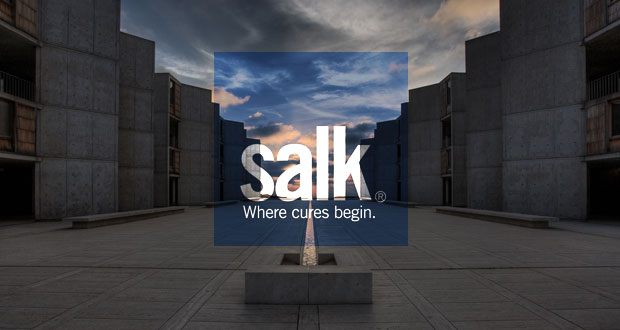How Cures Begin explores the lives of scientists and discoveries at the Institute
La Jolla CA— A new podcast series called How Cures Begin launches this week and features one-on-one conversations with Salk researchers working at the forefront of their respective scientific fields, from cancer and neuroscience to plant biology, circadian science and more. The eight episodes of season 1, which will be released weekly beginning October 30, 2019, include interviews with the following Salk scientists:
Nicola Allen, associate professor, discusses her research investigating star-shaped brain cells called astrocytes, important support cells in the brain, during this interview and audio tour of her lab.
Eiman Azim, assistant professor, On this episode of Where Cures Begin, he speaks about how the brain controls skilled movements such as throwing a dart. Azim also shares about his life as a husband and dad, and the importance of training the next generation of scientists.
Joanne Chory, globally renowned researcher and director of Salk’s Harnessing Plants Initiative, describes how plants can help mitigate climate change, and how her personal journey with Parkinson’s disease makes her research even more urgent.
Ken Diffenderfer, assistant director of Salk’s Stem Cell Core facility, shares what stem cells are, why they are so valuable for research, and what their favorite medium is (sadly, it’s not audio). He also takes listeners on a guided tour of the Stem Cell Core.
Dannielle Engle, assistant professor at Salk, has a personal and professional connection to pancreatic cancer. She tells us why pancreatic cancer is both hard to detect and hard to treat, as well as describes innovative approaches her lab is taking to tackle these deadly tumors.
Rusty Gage, professor and Salk’s president, is a leading authority in neuroscience. Aside from discovering that brains grow new neurons (“neurogenesis”), Gage has made many critical discoveries in the fields of genetics, mental disorders and aging-related dementia, like Alzheimer’s. He shares his cutting-edge research and why Salk is one of the top scientific research institutes in the world.
Tony Hunter, an American Cancer Society Professor at Salk, has garnered many prestigious international awards for his cancer research. Hunter shares highlights from his 50-year journey as a scientist, including how he made the critical discovery that launched an entirely new class of anti-cancer drugs.
Emily Manoogian, a postdoctoral fellow at Salk, studies the biological clock that affects every cell in our body. The lab she works in has made several discoveries showing that eating within a certain number of hours (dubbed the time-restricted diet) can have a host of health benefits.
Where Cures Begin is a production of the Salk Office of Communications, and can be heard on Apple and Google podcasts, Stitcher, and the Salk Institute website.
About the Salk Institute for Biological Studies:
Every cure has a starting point. The Salk Institute embodies Jonas Salk’s mission to dare to make dreams into reality. Its internationally renowned and award-winning scientists explore the very foundations of life, seeking new understandings in neuroscience, genetics, immunology, plant biology and more. The Institute is an independent nonprofit organization and architectural landmark: small by choice, intimate by nature and fearless in the face of any challenge. Be it cancer or Alzheimer’s, aging or diabetes, Salk is where cures begin. Learn more at: salk.edu.




